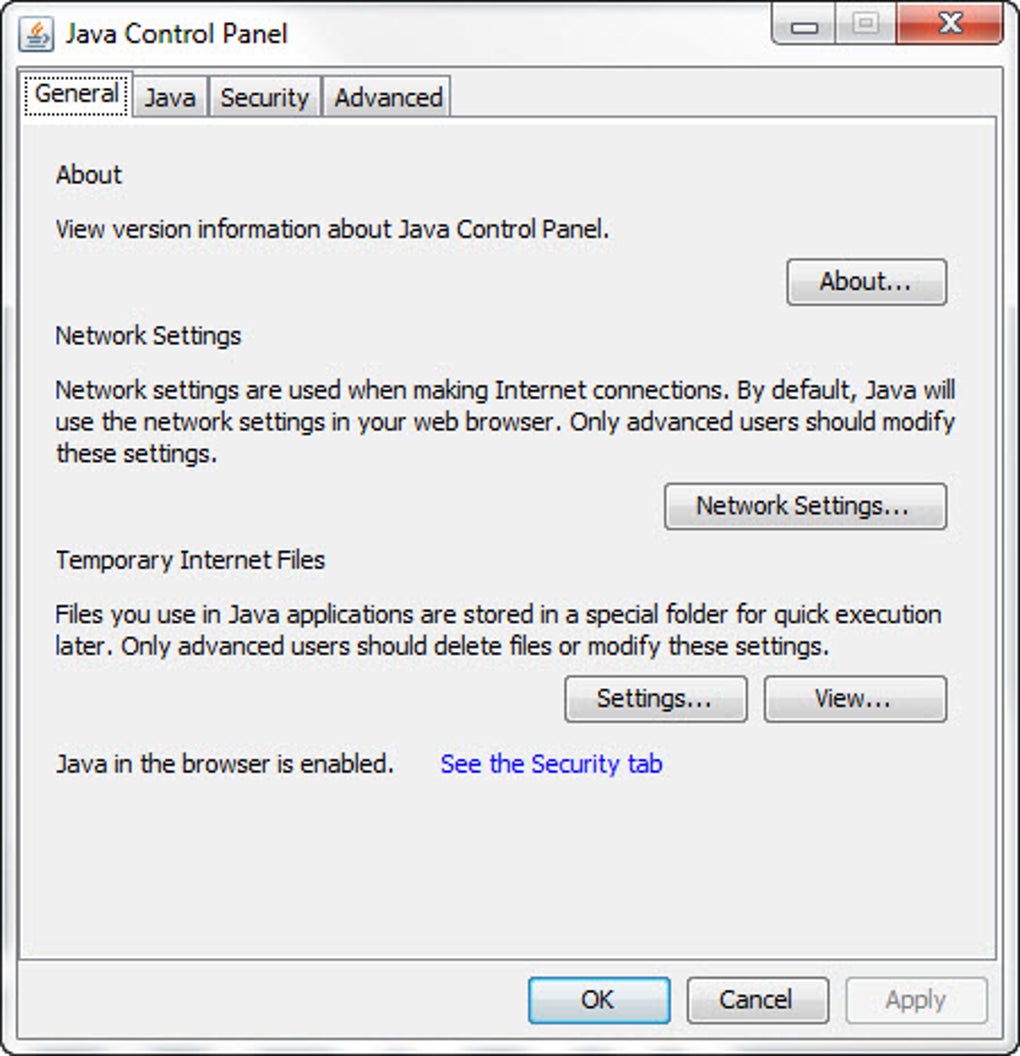How Important Is Java for the Mac? I seem to be getting notifications for Java updates with increasing frequency. I always try to keep all software up-to-date on my Mac, but not only is Java popping up more often, but the update installer wants to change my homepage to Yahoo. The only way to update from Java 6 (1.6)—the last version supported by Apple—to Java 7 is by manually downloading and installing it from Oracle. And apparently few Mac users have done so. Make sure you have a recent Java JRE installed on your system. Gephi is compatible with Java 7 and 8 versions. Download Free Java here. After the download completes, run the installer and follow the steps. After the download completes, click on the downloaded.dmg file. Drag the gephi application in your Application folder. This is my first MAC ever and I'm still trying to get the hang of navigating my way around. Anyway, I'm also new to Java and I've been practicing on my Windows PC before it permanently died. Now that I'm on this MAC, I installed my JDK and now I need to set the JAVAHOME environment variable. 2) JAVAHOME is essentially the full path of the directory that contains a sub-directory named bin which in turn contains the java. Cd /Library/Java/ You should have bin folder inside /Java folder and in turn it must contain the java executable package. Folder structure for Mac OS.

The following are the system requirements for installing the JDK and the JRE on macOS:

Any Intel-based computer running macOS.
Administrator privileges.
You cannot install Java for a single user. Installing the JDK and JRE on macOS is performed on a systemwide basis for all users. Administrator privileges are required to install the JDK and JRE on macOS.
When you install the JDK, it also installs the JRE. However, the system will not replace the current JRE with a lower version.
To determine the current JRE version installed on your system, see Determining the JRE Version Installed on macOS. To install an earlier version of the JRE, you must first uninstall the current version. See Uninstalling the JRE on macOS.
When you install the JRE, you can install only one JRE on your system at a time. The system will not install a JRE that has an earlier version than the current version.
To determine the current JRE version installed on your system, see Determining the JRE Version Installed on macOS. To install an earlier version of the JRE, you must first uninstall the current version. See Uninstalling the JRE on macOS.
Note:
Installing a JRE from Oracle will not update
java -versionsymlinks or addjavato your path. To do this, you must install the JDK.
For the protection of our customers, Apple does not disclose, discuss, or confirm security issues until a full investigation has occurred and any necessary patches or releases are available. To learn more about Apple Product Security, see the Apple Product Security website.
For information about the Apple Product Security PGP Key, see 'How to use the Apple Product Security PGP Key.'
Where possible, CVE IDs are used to reference the vulnerabilities for further information.
Java Runtime For Mac
To learn about other Security Updates, see 'Apple Security Updates.'
Java for Mac OS X 10.6 Update 2

Java
CVE-ID: CVE-2009-1105, CVE-2009-3555, CVE-2009-3910, CVE-2010-0082, CVE-2010-0084, CVE-2010-0085, CVE-2010-0087, CVE-2010-0088, CVE-2010-0089, CVE-2010-0090, CVE-2010-0091, CVE-2010-0092, CVE-2010-0093, CVE-2010-0094, CVE-2010-0095, CVE-2010-0837, CVE-2010-0838, CVE-2010-0840, CVE-2010-0841, CVE-2010-0842, CVE-2010-0843, CVE-2010-0844, CVE-2010-0846, CVE-2010-0847, CVE-2010-0848, CVE-2010-0849, CVE-2010-0886, CVE-2010-0887
Available for: Mac OS X v10.6.3, Mac OS X Server v10.6.3
Impact: Multiple vulnerabilities in Java 1.6.0_17
Description: Multiple vulnerabilities exist in Java 1.6.0_17, the most serious of which may allow an untrusted Java applet to execute arbitrary code outside the Java sandbox. Visiting a web page containing a maliciously crafted untrusted Java applet may lead to arbitrary code execution with the privileges of the current user. These issues are addressed by updating to Java version 1.6.0_20. Further information is available via the Sun Java website at http://www.oracle.com/technetwork/java/javase/releasenotes-136954.html
Java
CVE-ID: CVE-2010-0538
Available for: Mac OS X v10.6.3, Mac OS X Server v10.6.3
Impact: Visiting a web page containing a maliciously crafted untrusted Java applet may lead to an unexpected application termination or arbitrary code execution with the privileges of the current user
Description: An out of bounds memory access issue exists in the handling of mediaLibImage objects. Visiting a web page containing a maliciously crafted untrusted Java applet may lead to an unexpected application termination or arbitrary code execution with the privileges of the current user. This issue is addressed by preventing Java applets from using the com.sun.medialib.mlib package. This issue only affects the Mac OS X implementation of Java. Credit to Marc Schoenefeld of University of Bamberg for reporting this issue.
Java 8 For Mac

Java
CVE-ID: CVE-2010-0539
Available for: Mac OS X v10.6.3, Mac OS X Server v10.6.3
Impact: Visiting a web page containing a maliciously crafted untrusted Java applet may lead to an unexpected application termination or arbitrary code execution with the privileges of the current user
Description: A signedness issue exists in the handling of window drawing. Visiting a web page containing a maliciously crafted untrusted Java applet may lead to an unexpected application termination or arbitrary code execution with the privileges of the current user. This issue is addressed through improved bounds checking. This issue only affects the Mac OS X implementation of Java. Credit to Jonathan Bringhurst of Northrop Grumman, and Jeffrey Czerniak for reporting this issue.
